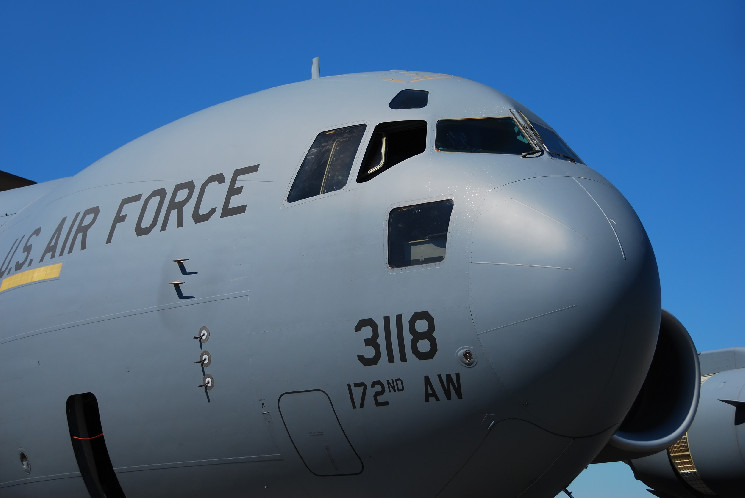Indiana’s SIMBA Chain continues its tokenization business with the US government. To track the flow of funds between departments and suppliers, USAF picked the blockchain-as-a-service provider in a new $30 million contract for its Strategic Technology Focus Initiative (STRATFI).
SIMBA’s job will be to build blockchain apps, so that supply chain management is easier to track. Alongside the USAF, SIMBA will do the same for the Navy, Army, Defense Logistics Agency, and the Office of the Undersecretary of Defense for Research & Engineering.
Just as one can track Bitcoin or Ethereum transactions with their respective blockchain explorers, the same can be done with any record. Once blockchain renders the record immutable, any item in the supply chain can be traced, following its journey between different entities. This not only increases transparency but it reduces costs resulting from third-party auditing, compliance, and bureaucratic paperwork.
SIMBA Chain’s History with the US Government
Short for Simple Blockchain Applications (SIMBA), the blockchain startup, was founded in 2017, based in Plymouth, Indiana. Originally, SIMBA started as a conceptual project at the University of Notre Dame’s computing department, together with Indiana Technology and Manufacturing Companies (ITAMCO).
Since it became a company, SIMBA Chain has earned 75% of its revenue from government contracts, typically for various military branches. Specializing in scaling blockchain for enterprises, SIMBA also provided blockchain tracking of coffee beans for Toks, a Mexico-based restaurant chain. This way, customers can know the coffee they buy is as advertised, traced from the farm to the end-consumer.
By the end of 2024, SIMBA Chain CEO Bryan Ritchie sees a reversal in client-base share, heading to 25% for government contracts and 75% for commercial enterprises.
“If we can do it for the military, we can do it for anybody. It’s given us great credibility.”
SIMBA Chain CEO Bryan Ritchie
For the early-adopting US Air Force, SIMBA got its first contract in 2019. Since then, the blockchain provider has had seven Small Business Innovation Research (SBIR) contracts with the USAF to tokenize its supply chain budget. In 2020, SIMBA forged the same service for the Navy, worth $9.5 million.
In June 2020, SIMBA secured a $1.5 million contract to develop blockchain-based supply chain logistics for the USAF. The project started with running a Hyperledger Fabric node at Oklahoma’s Tinker Air Force Base, known as the hub for Air Force logistics.
Developed by the Linux Foundation, HyperLedger Fabric is an open-source and modular blockchain framework. However, all its nodes are permissioned, so all participants can be vetted. As such, both Walmart and Amazon have been using HyperLedger Fabric for their blockchain needs.
Why Does the Department of Defense (DoD) Need Blockchain Tracking?
The DoD’s US Air Force weighs heavily in the total military budget spending. Out of the requested $839 billion for the fiscal year of 2023, the USAF’s share is $234.1 billion. This includes $40.2 billion for “pass-through funds”, as 17.1% of the total USAF budget, and $24.5 billion for the Space Force.
According to retired Lt. Gen. Bruce Wright, president of the Air & Space Forces Association, the practice of pass-through spending is somewhat controversial.
“The pass-through distorts how the Congress and the American people view and understand Pentagon spending, a practice that hides funding from other agencies in a budget that has, for the past 30 years, been starved of the resources needed to maintain modern and ready Air and Space Forces.”
Lieutenant General Bruce A. Wright, AFA president
In addition to the opacity of pass-through spending, it is no secret that the Department of Defense failed its fifth consecutive audit last November. Out of $3.5 trillion in assets, 39% were unaccounted for. Only time will tell if SIMBA Blocks will help with the much-needed transparency in the government spending of the tax-payer money.
Do you think the lack of transparency in military spending is by design so the DoD can be more flexible? Let us know in the comments below.
 tokenist.com
tokenist.com
